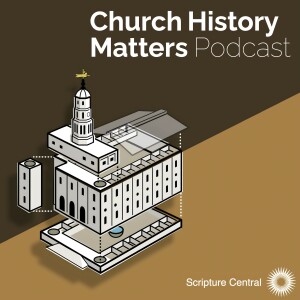

Author Timothy Gallwey tells a story about how one cold winter night he was driving from Maine to New Hampshire. It was around midnight, and he was on a deserted country road. Suddenly, his car hit an icy curve and slammed into a snowbank. After that, he was unable to get the car started again.
It was about twenty degrees below zero, and he wasn’t appropriately dressed to be outside. His only protection was a light jacket. It had been more than twenty minutes since he passed through a town, and he hadn’t seen another car or even a farmhouse since that town. He had no map, and he had no idea how far it was to the next town.
He got out of his car and started running down the road, but the cold quickly drained his energy and, after about two minutes, he slowed down to a walk. Within another minute or two, his ears were so cold that he thought they would break if he touched them. So he tried to run again but quickly slowed down to a walk.
Then the gravity of the situation struck him. He could picture himself lying by the roadside covered with snow, frozen to death. The very thought paralyzed him with fear. Finally, he found himself speaking aloud, and he said, “Okay, if now is the time, so be it.” With that, he stopped worrying about death, and he began jogging down the road.
After a few minutes of rhythmic jogging, he found himself marveling at the beauty of the star-filled sky and the snow-covered countryside. He jogged for a full forty minutes and stopped when he saw the light of a farmhouse. Miraculously, he had survived the cold.
In our second reading today, we hear the voice of God say to St. Paul: “My grace is sufficient for you, for power is made perfect in weakness.” This sounds like an incredible paradox. How can power be made perfect in weakness? Timothy Gallwey’s story illustrates just how this is the case.
When we recognize that we are helpless without God and without the gifts and talents that God has given us, we’re able to do incredible things that we would never be able to do if we saw ourselves as doing it all alone. God gives us many gifts, abilities, and tremendous energy, but we can use them only when we put aside our conscious efforts and let the life of the soul take over.
Paul reinforces the message of God with his own words when he says, “When I am weak, then I am strong.” Paul is speaking about how, when he recognized his limitations and relied on God, then he opened himself to the power of God that is always available and always active in our lives. In other words, we need to be humble, be weak, and have moments of crisis if we are going to turn to God for help and then be empowered to deal with whatever life hands us.
It was eighty-two years ago today that Lou Gehrig gathered with his teammates and an emotional crowd at Yankee Stadium as they bid him farewell after his diagnosis with ALS – a disease which now bears his name. In his brief speech to the crowd, Gehrig acknowledged that some thought he had been cheated somehow by the disease that ended his career and would soon end his life, but he said that he had much for which to be thankful. That was a moment of grace, of acknowledging that God has given us all that we have and, even during struggle and pain and tragedy, God’s goodness and grace are still present in our midst.
I’d like to close with a poem that was written by an unknown Confederate Soldier during the Civil War:
I asked for health,
that I might do greater things;
I was given infirmity,
that I might do better things…
I asked for riches, that I might be happy;
I was given poverty, that I might be wise…
I asked for power,
that I might have the praise of [people];
I was given weakness,
that I might feel the need of God…
I asked for all things, that I might enjoy life;
I was given life, that I might enjoy all things…
I got nothing I asked for,
but everything I hoped for.
Almost despite myself,
my unspoken prayers were answered.
I am among all [people] most richly blessed.
More Episodes
All Episodes>>You may also like
Create Your Podcast In Minutes
- Full-featured podcast site
- Unlimited storage and bandwidth
- Comprehensive podcast stats
- Distribute to Apple Podcasts, Spotify, and more
- Make money with your podcast












